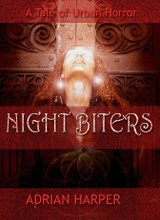| 
|
The importance of fathers in raising African American teens.
BY LEE PRATER YOST
"Show me a room full of boys, and nine times out of ten I can tell which ones have fathers at home—they sit quietly and exhibit self-control," says Jelani Mandara, assistant professor of human development and social policy, who came to Northwestern this fall from the University of California, Riverside.
Mandara studies family dynamics and the effects of fathers on child and adolescent social and personality development. His longitudinal research project, funded by the National Institutes of Health, focuses on African American families and takes a typological approach.
Fathers have a strong impact on girls as well as boys in African American families, but the effects are different and less immediate. Fathers generally exhibit a tougher disciplinary style than mothers and are stricter with sons than daughters. As a result, sons develop a sense of manliness, self-esteem and self-concept. When fathers are absent, less is demanded of sons.
Although the presence of fathers enhances children’s self-esteem regardless of gender, the effects on daughters are often seen later in life. "Fathers influence daughters’ later relationships with other men," says Mandara. Absent fathers and lack of parental monitoring in general have been found to decrease self-control and increase a teenage girl’s propensity for sexual activity.
"As I continue my research at Northwestern, I hope to develop a family environment instrument—a measurement tool for families similar to accepted measures of personality," says Mandara. I want to measure different aspects of the family environment—family relationships. Every family has a personality."
With his research, based on observational data as well as self-reporting questionnaires, he has grouped black families into three types: Cohesive-Authoritative, Conflictive-Authoritarian and Defensive-Neglectful. Each type has distinctive characteristics and predicted teen behavior outcomes.
Cohesive families exhibit the highest overall level of family functioning as measured by a focus on recreational activities, demonstration of affection and balanced control of the children.
In contrast, chaotic family relationships, a focus on achievement and tight parental control are hallmarks of Conflictive families. Children feel they are not allowed to express their feelings or question authority.
Defensive families are at high risk of becoming dysfunctional. Parents are not nurturing or supportive, yet are very critical. Significantly, fathers are present in 58 percent of Cohesive families, but in only 27 percent of Defensive families.
Adolescents in the three family types develop and behave differently. Teens in Cohesive families perceive themselves as obedient and conscientious with high self-esteem and ethnic identity. This is most likely due to the finding that Cohesive family parents let their children know they are valued. In contrast, the other two family types are more likely to express unhappiness with their children’s abilities and performance. The Cohesive family has found a balance of control and nurturing that is the most beneficial to their children.
A distinct difference in teen personalities emerges from the three family types. Adolescents in Cohesive families are good-natured and trusting. Because they are conscientious, they are likely to be organized, reliable and self-disciplined. These adolescents would be considered well adjusted.
Conflictive adolescents are somewhat disagreeable, cynical and uncooperative. Despite their parents’ focus on achievement, they are not very conscientious, perhaps because their parents rarely show satisfaction with their achievements.
Defensive family teens are doing poorly socially and most likely academically. Because of their low self-esteem, they are defensive to criticism and are emotionally unstable. Moreover, because of low parental monitoring, they are more likely to become involved in such risky behavior as drug use and unprotected sexual activity.
Since fathers play such a crucial role in the development of self-esteem, it is clear that their absence has profound implications for social problems. "In a two-parent home, the balance between the mother’s and father’s different socializing patterns may be what keeps the self-esteem of boys and girls relatively equal," says Mandara. "The absent father upsets this balance.
The quality of family functioning affects youth violence and aggression, substance abuse, academic achievement, cognitive performance, social and emotional adjustment, well-being, ethnic identity and personality.
Although Mandara’s research into family typology does not include white families, he points out that, in general, discipline styles and family goals differ between the two ethnic groups. White families tend to be more permissive and encouraging with a high level of warmth and a low level of control, while African American families tend to be more authoritarian. White families’ main goals for their children are independence, self-reliance and achievement, whereas African American families stress discipline and respect. "Black children would never be permitted to speak to their parents the way white children do," notes Mandara.
The biggest ethnic difference Mandara has found is that the impact of a father’s absence in African American families is more severe and pervasive, perhaps because it is more common. Single black mothers face high levels of stress, which significantly and detrimentally affect their children.
Mandara’s research on the role of fathers has profound implications for family researchers, therapists and policy makers. He suggests that public policy be more focused on reversing the current trends of low marriage rates and high divorce rates. He advocates free or subsidized family counseling before and during marriage, increased visitation rights for non-custodial parents and school and community involvement to help fill the void of absent fathers.
"Society has stereotyped good fathers as emotionally detached financial providers, whose role in child development is to teach their sons how to play sports and warn their girls about boys," says Mandara. "However, good fathers are actively involved in the day-to-day socializing of their children—from changing diapers and rocking their babies to sleep to checking homework and playing in the park. Good fathers set limits, enforce rules, push children to achieve and use a form of ‘tough love’ that complements mother’s ‘unconditional love.’ When men are unwilling or prevented from being good fathers, the consequences for their families can be seen for generations."


